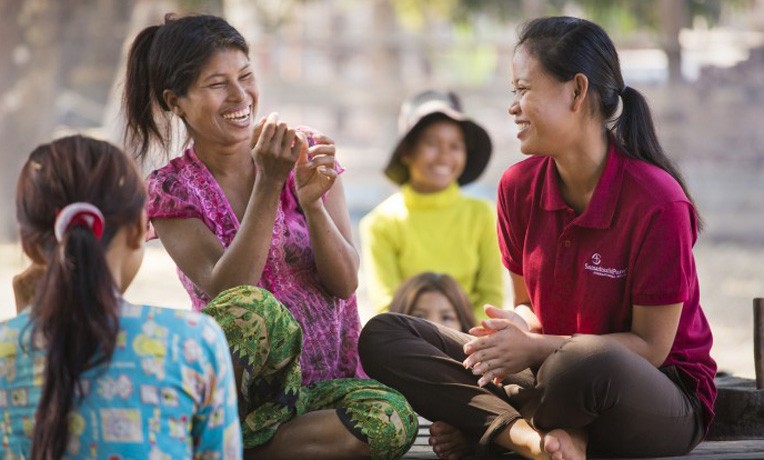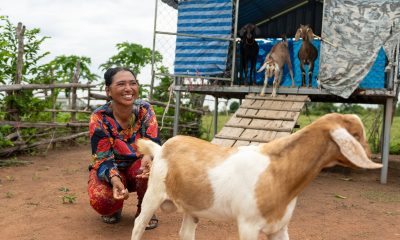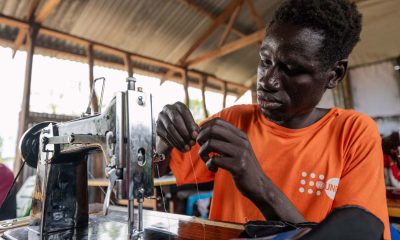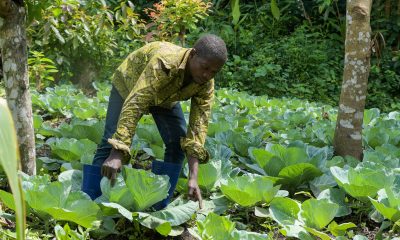Graham; Van Susteren; and Van Susteren’s husband, John Coale, saw Samaritan’s Purse projects and beneficiaries in Southeast Asia
Franklin Graham; Greta Van Susteren; and Van Susteren’s husband, John Coale, visited two Cambodian villages near the Thailand border on November 16. Samaritan’s Purse has teamed up with Van Susteren and Coale to bring relief to hundreds of families in Yeay Ort and Chouk Chey. The villages have suffered from drought for several consecutive years, leaving parents struggling to consistently provide enough food—or any at all—for their children. The drought also made it difficult to find farming work in Thailand, where many villagers migrate as day workers.
“The people here have had a lot of difficulty just surviving life,” Graham said. “We want to be a light in a very dark part of the world.”
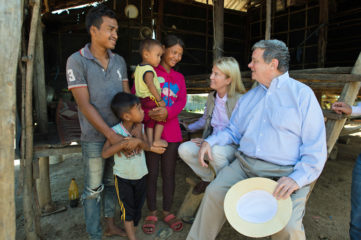
Van Susteren and Coale visit a beneficiary of Samaritan’s Purse
Van Susteren and Coale partnered with Samaritan’s Purse to build an irrigation system for the two villages in order to alleviate hardship caused by the droughts. Through their partnership and our food and livelihood assistance project, families are also benefiting from trades such as growing mushrooms and raising chickens and pigs.
“At Samaritan’s Purse we believe in helping people who have been beaten down from life’s road,” Graham said. “We look for people around the world we can give aid, but we do it in Jesus’ Name.”
Mushrooms Keep a Family Together
Although it was 15 years ago, Sreylin still weeps when talking about what happened the year she turned 14 years old. Sreylin had to grow up quickly when she was forced to drop out of school in Chouk Chey, leave behind her teen years, and assume adult responsibilities.
“I was living in a hard condition,” she said. “I had to take care of my brothers and sisters.”
Her parents couldn’t find work, her oldest brother had moved to Phnom Penh, and her other older brother had become a monk. As next in line, Sreylin had to help care for her three younger siblings. She tried working in Cambodia, but it wasn’t enough. At age 17, Sreylin went to Thailand and found a job in construction.
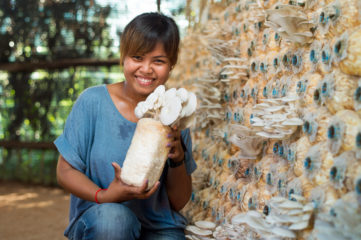
Sreylin with her mushroom crop
“The work was really hard because I had to carry cement buckets every day,” she said.
The task was grueling day in and day out, and Sreylin was rarely compensated appropriately. One month she only earned 200 baht (about $7).
After several arduous years in construction, Sreylin returned to Cambodia. Since then it’s been a constant fight for her and her family to have enough to eat.
She was ready to return to Thailand when Samaritan’s Purse stepped in. We provided her with 200 bags of mushroom spores and taught her how to harvest the mushrooms and how to sell them in the market.
Sreylin, now married with two children, made the most of this opportunity. She and her husband used what they earned from selling mushrooms to buy more spores and start a mushroom growing business.
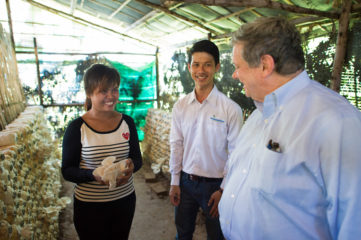
Sreylin shows her mushroom crop to Coale
When Graham, Van Susteren, and Coale visited Sreylin’s home she showed them her mushroom hut, which now has nearly 4,000 bags of spores. She also thanked Samaritan’s Purse for helping turn her life around.
“Without Samaritan’s Purse we would never have been able to do this,” she said. “Now I can stay home and take care of my family.”
Crossing the Border
Migrating to Thailand was dangerous for Sreylin because, like most Cambodians, she crossed the border without a passport, visa, or work permit. Many Cambodians cannot afford or do not have access to these documents that would make migration safer.
“Though unsafe migration is the easy option, it leaves people exposed to exploitation, trafficking, and abuse,” said Barry Jessen, Samaritan’s Purse program manager for safe migration and trafficking awareness. “They leave with hope in their hearts that they’re doing something good for their family. But often they’re unable to send any money to their family, which leaves them feeling distraught and helpless.”
Our safe migration program teaches people the risks and consequences of unsafe migration and how to take steps to cross the border safely. Almost 55 percent of households in Banteay Meanchey Province, home to Yeay Ort and Chouk Chey villages, have a family member who has migrated to Thailand.
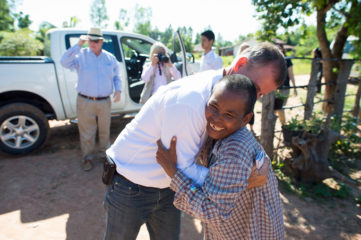
A beneficiary hugs Barry Jessen, Samaritan’s Purse program manager for safe migration and trafficking awareness
The safest option is to not migrate, but, for people to stay home, they must earn an income so they can support their families. For some Cambodians, financial security and a good future for their children seems impossible because they’re still living with the terror of their country’s past.
Cambodia is recovering from a brutal civil war and genocide that wiped out one-fourth of the population and left the rest in poverty and fearful for the uncertain days ahead. Samaritan’s Purse is helping people see that their futures don’t have to look like their pasts.
“After living with years of disappointment, uncertainty, and broken promises, people have seen that the project is not just a dream,” Jessen said. “People are now planning for the future and thinking about how it can be better next year. We’ve stared to see houses repaired, rice fields refurbished, people harvesting two crops of rice instead of one, and children going back to school.”
Samaritan’s Purse helps beneficiaries like Sreylin plan for the future by teaching practical skills. When they learn how to develop a business plan, manage their budget, and sell a product, they can transition from immediate survival to the future.
Jessen said the most exciting aspect of the program is the opportunity to share the Gospel and to see God work in a predominantly Buddhist country. This year, through the safe migration and trafficking awareness program in Cambodia, 1,000 people have come to faith in Jesus Christ.
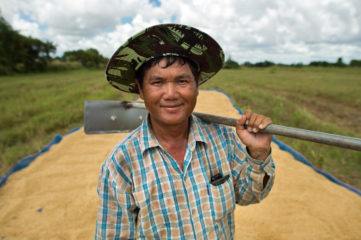
Uoch
Canal Brings Life
Uoch is a 60-year-old rice farmer who only sees his two daughters once every year because they work in Thailand. They moved away when Uoch wasn’t able to make ends meet in Yeay Ort because of the drought.
“I’ve always been a rice farmer,” Uoch said. “I don’t do any other work.”
This farmer had no idea that one day his bamboo home and rice fields would sit along the banks of a five-mile canal that would change his life. Uoch and nearly 200 other farmers can now pump water from the irrigation system into their fields.
“Without water from the canal, I could not plant rice,” Uoch said. “This year I have 10 tons of rice.”
That’s double what he harvested last year. He expects to harvest several more tons by the end of the year.
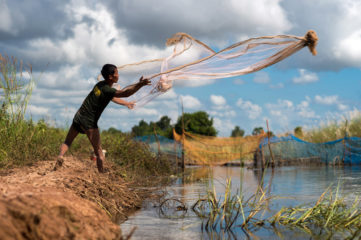
Fishermen in the village also use the canal for their livelihoods.
“More water means more crops,” he said. “I’m really thankful to Samaritan’s Purse.”
More crops mean more income, and more income means a greater likelihood that Uoch’s family will be reunited and rescued from the dangers of unsafe migration.
“I hope and dream that my daughters will come back to live with me.”
Samaritan’s Purse has worked in Cambodia for more than a decade to bring physical aid and to demonstrate the love of Jesus Christ. It’s a nation craving the promise of a better tomorrow. In Yeay Ort and Chouk Chey, a little help is going a long way to bring hope to many Cambodians.
